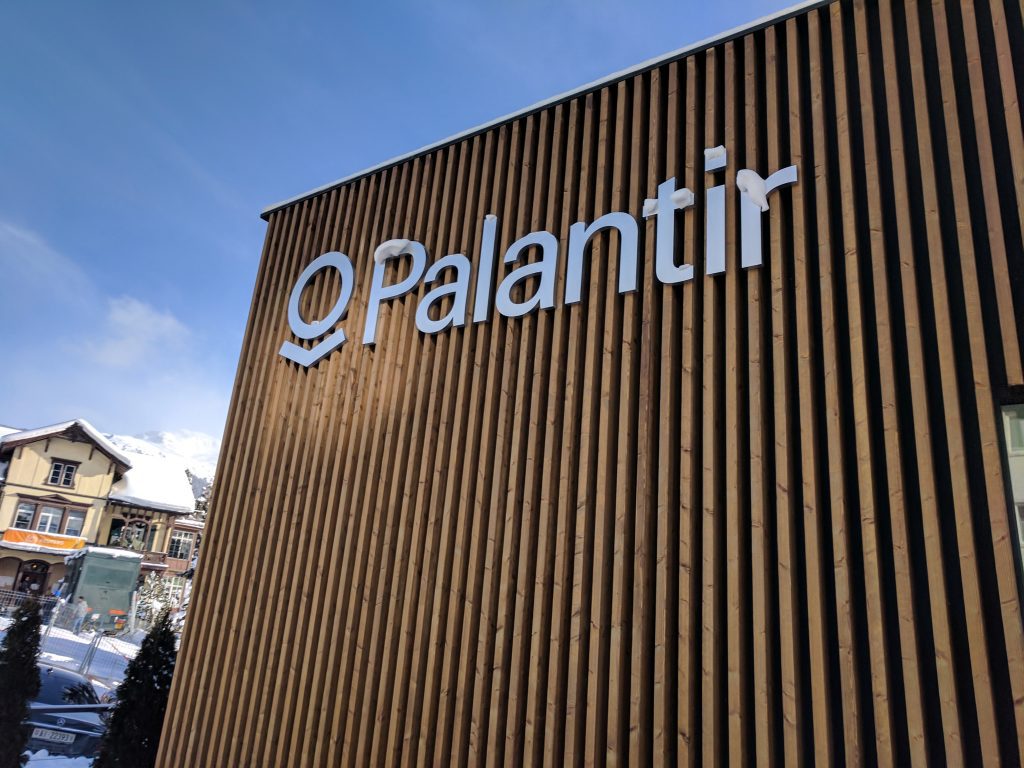
Introduction: Denver’s Thin Air and a CEO’s Reflection
Denver winters are cold, yet the air feels strangely light at 1,600 meters above sea level. Inside Palantir’s headquarters, CEO Alex Karp gazed out the window, his thoughts lingering on the past two decades. A philosopher by training, Karp speaks slowly, but acts decisively. Sunlight spilled across the ridges outside, reflected on a frozen river, while a blinking number on his monitor pulled his gaze back inside:
Quarterly revenue: $1 billion.
Next to it: 93% commercial growth.
But to Karp, these weren’t just numbers—they were the compressed story of twenty years of stubbornness, sleepless nights, fierce debates, and decisive turns.
The Birth of an Idea: 9/11 and Peter Thiel’s Proposal
It began in 2003, in the uneasy air after 9/11. U.S. intelligence agencies had more data than ever, yet failed to spot true threats in time. Peter Thiel, co-founder of PayPal and now an influential Silicon Valley investor, proposed building a company to bridge the gap between data and security.
Karp joined as co-founder despite having no business experience, bringing instead his unique views on power, freedom, and technology. Alongside him were Stephen Cohen (engineering lead), Joe Lonsdale (business development), and Nathan Gettings (youngest architect of the platform’s backbone). Their vision: not to collect more data, but to make data interpretable, trustworthy, and actionable.
The first to believe in them was In-Q-Tel, the CIA’s venture arm. A $2 million investment was more than capital—it was a seal of belief that their software could help protect the nation.
Gotham: The First Platform
Their first creation was Gotham, led by Gettings. It connected government data like a living map: phone records, financial flows, geolocation traces—all fragments woven into patterns on a single screen.
In Iraq and Afghanistan war rooms, inside the NYPD, and across Homeland Security, Gotham became the silent tool behind missions. It saved lives, and drew criticism. Palantir insisted: “We don’t generate or sell data. We connect, audit, and help analyze it.” But suspicion was not so easily erased.
Foundry: Opening the Commercial Frontier
Palantir was never meant to remain only a government contractor. Lonsdale discovered that factories, hospitals, banks, and logistics firms faced the same fragmentation: siloed data, incompatible systems. The solution was Foundry.
Foundry stitched enterprise data into an operating system for organizations. In an aircraft factory, managers could see parts manufacturing, quality control, and supply chains moving together in real time. In hospitals, patient data flowed across departments without barriers. Foundry became Palantir’s gateway into the commercial market.
The AI Era: Asking the Hard Question
By 2023, the world drowned in AI hype. Chatbots, flashy demos, endless promises. Karp posed a harder question: “What must happen for AI to truly work in the field?”
Palantir’s answer: AIP (Artificial Intelligence Platform). Instead of autonomous black boxes, AIP layered AI atop Gotham and Foundry, embedding security, compliance, and privacy from the ground up. AI didn’t replace humans—it offered suggestions and executable actions within legal and ethical boundaries.
Bootcamps: Speed as Strategy
Driving AIP adoption was Shyam Sankar, Palantir’s Chief Commercial Officer. His innovation was the Bootcamp model. Teams embedded directly at client sites, connecting real data within days, and producing a working prototype on the spot. Deals were often signed in the same room, as results spoke louder than slide decks.
By early 2025, Palantir had conducted over 1,300 bootcamps, spreading AIP across industries at a breakneck pace.
Controversy: Technology, Power, and Ethics
But not every chapter was applause. Palantir’s deep ties with defense, policing, and immigration enforcement fueled criticism from human rights groups. Some called the company “the engine of a surveillance state.”
Karp pushed back: “Technology reflects values. We stand with Western alliances and democratic institutions.” The debate continues, unresolved, but central to Palantir’s identity.
The Expanding Stack: Gotham, Foundry, Apollo, and AIP
Today, Palantir’s ecosystem spans four pillars: Gotham (government intelligence), Foundry (enterprise operations), Apollo (software deployment), and AIP (AI integration). Together, they form a stack designed to be present at the most critical decision-making moments—whether on battlefields, trading floors, factory floors, or hospitals.
The goal is vast yet simple: to ensure Palantir’s software is in the room where the world’s most consequential decisions are made.
Conclusion: From Frozen Rivers to Global Stages
Snow thickened outside the Denver office. Karp turned off his monitor and smiled faintly. Twenty years ago, it was impossible to imagine a sentence containing AI, war, and data ethics. Now, that sentence often carries a single word within it: Palantir. And behind that word stand the faces of Karp and his co-founders, who set out to give the world eyes to see the unseen.

By Palantir Technologies.The original uploader was KarimKoueider at English Wikipedia. – Transferred from en.wikipedia to Commons.(Original text : https://investors.palantir.com/home/default.aspx), Public Domain, https://commons.wikimedia.org/w/index.php?curid=102550146
